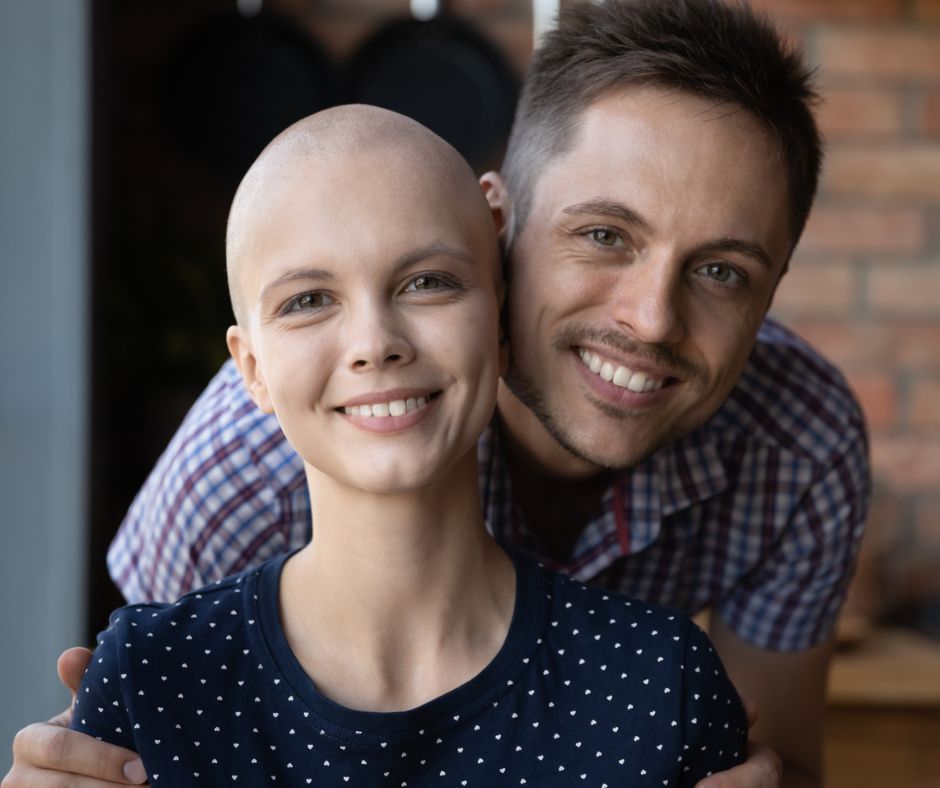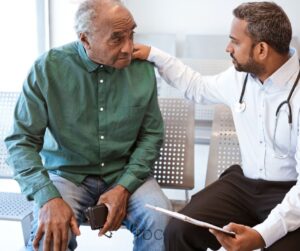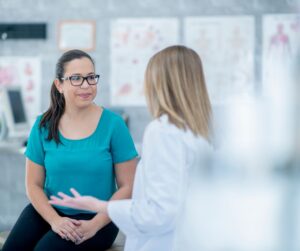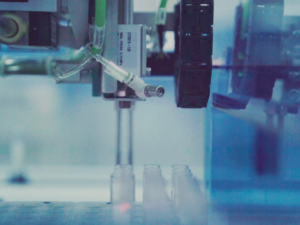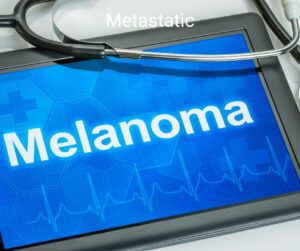Part 2 of a two-part article on caring for adolescents and young adults in oncology
At an age when most young people are charting their futures, some face an unexpected detour: a cancer diagnosis. For adolescents and young adults (AYAs), typically defined as those between 15 and 39 years old, cancer arrives at a critical juncture of personal development and affects more than just their health.1 Cancer significantly impacts their emotional growth, education, and social lives. This creates a unique set of challenges that go well beyond medical treatment alone.2
Recognizing these distinct challenges, healthcare providers are increasingly focusing on comprehensive care models for AYA patients. One such approach is exemplified by the Mass General Cancer Center in Boston. The Mass General Cancer Center’s AYA Cancer Program model aims to address the multifaceted needs of AYAs facing cancer, offering a blueprint for supportive care that encompasses the whole person.3
Identifying key players and partners
The success of Mass General Cancer Center’s AYA Cancer Program hinges on recognizing and involving a diverse array of stakeholders. Christina Kim, a nurse practitioner at Mass General Cancer Center, outlined the broad spectrum of individuals and groups involved.
At the core are the clinicians—oncologists, nurse practitioners, physician assistants, surgeons, psychiatrists, and nurses—whose expertise and direct patient care make them essential to the program’s effectiveness. Equally important are the patients themselves, whose voices and experiences guide the program’s direction and services.
Families are also key players. Kim noted that AYA patients often occupy a unique position, where they are frequently still dependent on family support, whether living at home, using parental insurance, or not yet fully established in their careers.
The program also recognizes the broader community as stakeholders, acknowledging that investing in young adults’ health has far-reaching societal benefits. Researchers round out this group, their work vital in advancing the understanding of AYA oncology patients’ needs and guiding program development.
Addressing the specific needs of AYA patients
Mass General Cancer Center’s AYA Cancer Program has developed a streamlined process to support young adult cancer patients centered around a novel role: the AYA program manager. This position, held by Matthew Gelin, serves as the linchpin. Now two years in the making, the program has refined its approach to addressing the unique needs of AYA patients.
The process typically begins when a clinician identifies an AYA patient and initiates a referral to the AYA Cancer program. This referral activates Gelin’s involvement, setting in motion a series of supportive interventions.
Gelin’s approach is proactive and patient centered. Rather than waiting for patients to seek out the program, he actively engages them where they are—be it in clinics, infusion labs, or before/after appointments. This outreach is crucial, as many young patients may not be aware of the specialized support available to them.
Gelin then conducts a needs assessment using a tablet-based survey. “[The assessment] asks what kinds of resources they would like to receive, what kind of questions they have about their cancer journey, etc,” he said. The needs assessment serves as a roadmap, guiding the program’s efforts to connect patients with appropriate resources and specialists within the MGH network.4
Once the assessment is complete, Gelin acts as a bridge, linking patients to the vast array of resources available at MGH. He communicates findings back to the referring clinician, ensuring that the primary care team is aware of any additional support their patient might need. This may include addressing questions about fertility, financial resources, or specific medical concerns that haven’t yet been discussed.
“We kind of see ourselves right now as like a consultative service because we’re supporting and supplementing the care that these patients are getting with their primary medical oncology team,” Stevens explained.
The program has seen significant growth since its inception. “We started in pediatrics and sarcoma and have since expanded into neurooncology and melanoma,” Gelin noted. The age range has also been broadened from 18 to 39 to include patients as young as 15, allowing the program to support even more young patients.
This expansion has led to an increase in patient engagement. “So far this year, we’ve encountered about 80 patients,” Gelin said, adding that they hope to maintain or increase this pace throughout the year.
Navigating new territory in AYA patient care
Launching a program like Mass General Cancer Center’s AYA Cancer Program doesn’t come without its share of challenges. “There’s no real guidebook for how to do this. Everyone just kind of starts with a wish and a dream and a motivation,” Kim said.. These challenges are typical of many grassroots initiatives in healthcare:
- Funding and resource allocation: As a non-revenue-generating program, the AYA initiative relies heavily on philanthropy and the dedication of staff who often contribute their time beyond their regular duties, Stevens explained. This constrains the program’s ability to expand rapidly or dedicate full-time staff to its development.
- Balancing growth and quality: The program faces the challenge of meeting high demand while maintaining care standards. Gelin noted that despite the desire to serve all young adult patients at MGH’s large cancer center, the developing program must carefully manage its expansion to avoid overextending its limited resources.
- Workflow and process refinement: Developing effective workflows, including the needs assessment process, has required multiple iterations, Kim says. The team continues to learn from experience and refine their approaches.
- Marketing and outreach: There’s a delicate balance between promoting the program’s services and ensuring they can meet increased demand. The program focuses on specific disease groups to maintain this balance.
Despite these challenges, the team remains committed to building and refining the AYA program, learning from other established programs, and gradually expanding their impact on young adult cancer care at MGH.
Envisioning the future of Mass General Cancer Center’s AYA Cancer Program
Building on their foundation, the team at the Mass General Cancer Center’s AYA Cancer Program aims to create a more comprehensive and accessible support system for young adult cancer patients.
One of their foci is strengthening peer connections among patients. Stevens emphasizes the importance of social support, recalling the significant impact of simple activities like decorating gingerbread houses. “One of my visions and hopes is to really reestablish regular connections,” she said.
The team plans to create more opportunities for patients to connect, recognizing that needs vary across the 15- to 39-year age range. Gelin echoed this sentiment, noting their intention to expand beyond existing brain tumor and sarcoma support groups to include general AYA support and disease-specific groups.
With the program now including 15- to 17-year-olds, there’s also a focus on developing resources specifically for this younger age range. The team is working to address the unique needs of these adolescent patients who may require different support than their older counterparts. Additionally, they plan to enhance their ability to connect patients with financial resources, tapping into the numerous foundations willing to support AYA cancer patients.
Looking further ahead, Stevens envisions dedicated clinicians focusing on AYA-specific medical issues, particularly related to the impact of chemotherapy and other oncology treatments on young adults. While acknowledging it as “dreaming big,” she expressed hope for a dedicated AYA clinic in the future, providing a centralized location for specialized care. Gelin said he hopes to implement a system where AYA patients are automatically flagged upon entry into the MGH system, ensuring they’re promptly connected with the program’s resources.
Frontline insights on launching an AYA cancer program
For advanced practice providers (APPs) and other healthcare professionals considering the implementation of an AYA program, the experiences of the Mass General Cancer Center’s AYA Cancer Program team offer valuable insights. Kim and Stevens, both integral to the AYA program, shared their advice for those embarking on a similar journey.
“It starts with passion, and it starts with recognizing the need,” Kim said. Clinicians who interact with patients regularly will easily recognize the need for an AYA program, as the unique challenges faced by young adult patients are readily apparent in daily clinical practice.
Kim advised identifying key stakeholders and being willing to advocate for the program. “Don’t be afraid to ask for things,” she urged, whether it’s funding or time allocation. She acknowledged that while many APPs aren’t trained in business aspects, developing a program requires stepping into this realm.
Stevens stressed the importance of assembling a diverse working group. “Establish a working group with a really wide variety of different types of clinicians,” she advised. The AYA Cancer Program team includes medical oncology APPs, a pediatric surgeon, a pediatric psychiatrist, researchers, social workers, and other healthcare professionals. This interdisciplinary approach brings varied perspectives and expertise to the table.
Both Kim and Stevens highlighted the need for persistence and patience. “You can’t let go of the gas pedal,” Kim said, stressing the need to maintain motivation even in the face of setbacks. “Patience and persistence have been my two other biggest lessons,” Stevens added.
They also underscored the importance of keeping patient needs at the forefront. “The essence of this is really just to improve the journey for patients whose lives are disrupted by cancer,” Stevens said. This patient-centered focus can help drive the program forward and inspire others to join the effort.
Lastly, both Kim and Stevens encourage practitioners to be open to learning and collaboration. The process of developing an AYA cancer program can break down silos within an institution and create new, beneficial connections across disciplines.
To read part 1 of this two-part article, visit https://apponcologysummit.org/caring-for-adolescents-and-young-adults-aya-in-oncology/
Maggie Aime, MSN, RN, is a health, wellness, and medical personal finance writer with over 25 years of experience in healthcare, including working in oncology in both non-clinical and nursing roles. With a passion for education, she draws on her diverse background across nursing specialties, oncology case management, revenue management, and utilization review to create empowering content.
References
- Bhatia, S., Pappo, A. S., Acquazzino, M., Allen-Rhoades, W. A., Barnett, M., Borinstein, S. C., Casey, R., Choo, S., Chugh, R., Dinner, S., Ermoian, R., Fair, D., Federman, N., Folbrecht, J., Gandhi, S., Germann, J., Goldsby, R., Hayashi, R., Huang, A. Y., Huang, M. S., … Hang, L. (2023). Adolescent and young adult (AYA) oncology, version 2.2024, NCCN clinical practice guidelines in oncology. Journal of the National Comprehensive Cancer Network: JNCCN, 21(8), 851–880. https://doi.org/10.6004/jnccn.2023.0040
- Jin, Z., Griffith, M. A., & Rosenthal, A. C. (2021). Identifying and meeting the needs of adolescents and young adults with cancer. Current Oncology Reports, 23(2). https://doi.org/10.1007/s11912-020-01011-9
- Coccia P. F. (2019). Overview of adolescent and young adult oncology. Journal of Oncology Practice, 15(5), 235–237. https://doi.org/10.1200/JOP.19.00075
- Haines, E. R., Lux, L., Smitherman, A. B., Kessler, M. L., Schonberg, J., Dopp, A., Stover, A. M., Powell, B. J., & Birken, S. A. (2021). An actionable needs assessment for adolescents and young adults with cancer: The AYA Needs Assessment & Service Bridge (NA-SB). Supportive care in cancer: Official Journal of the Multinational Association of Supportive Care in Cancer, 29(8), 4693–4704. https://doi.org/10.1007/s00520-021-06024-z

